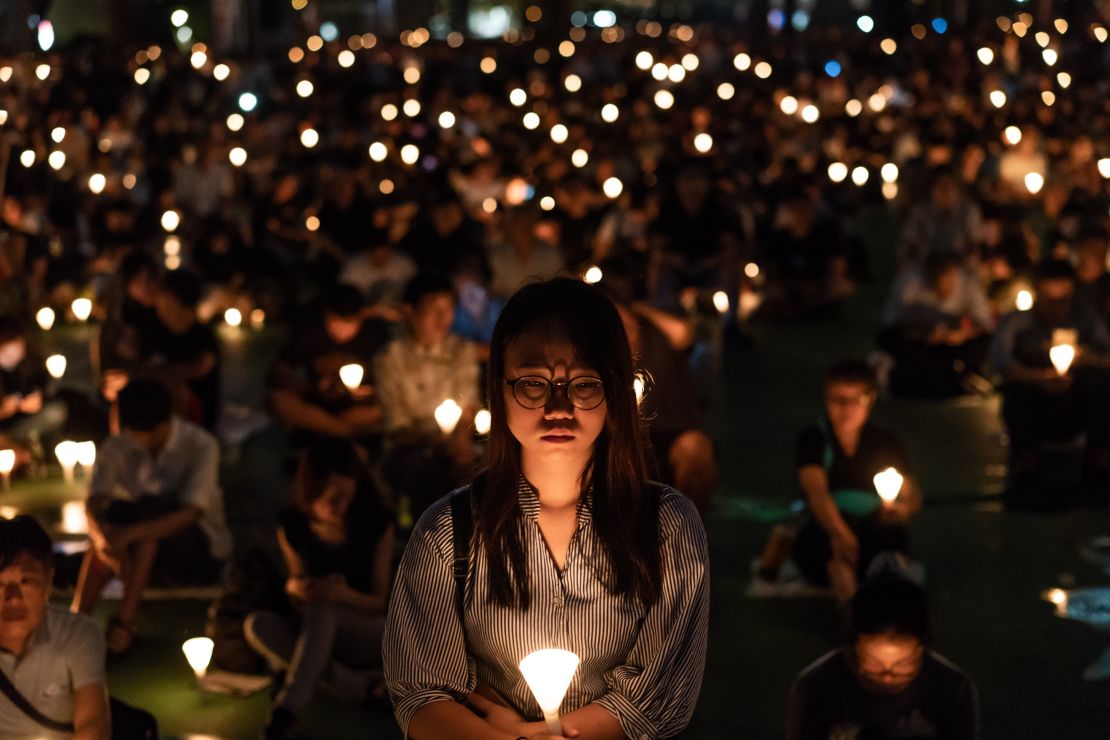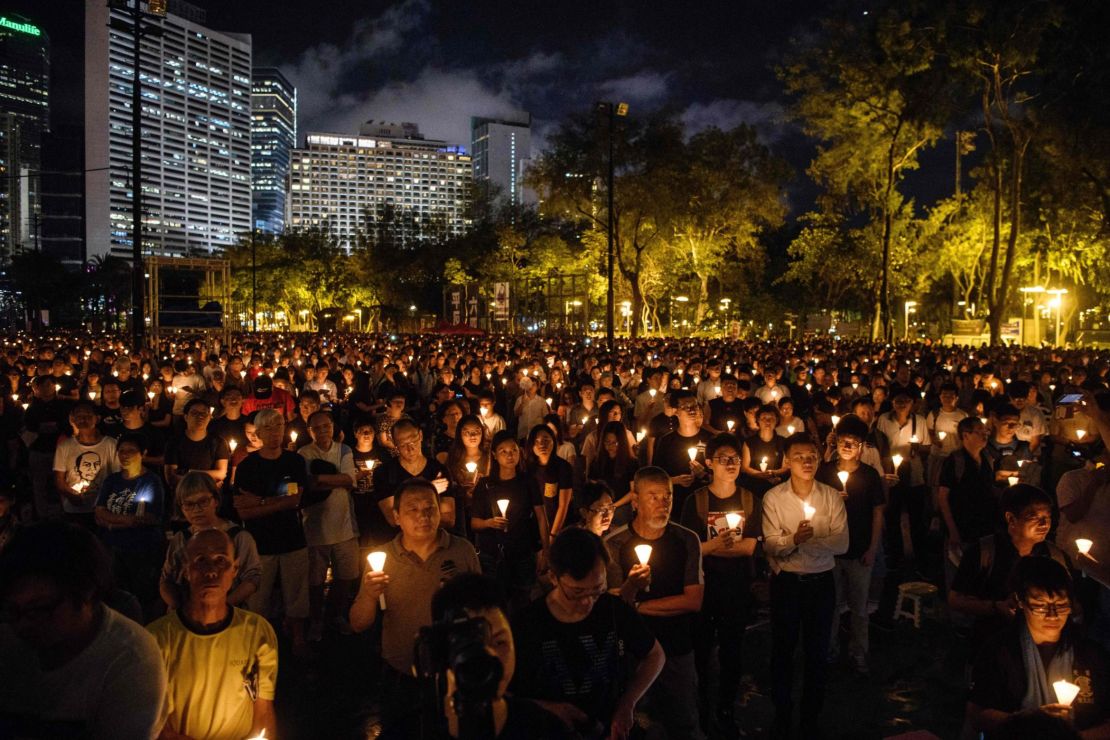Editor’s Note: Michael Caster is a human rights advocate, researcher, civil society consultant and the editor of “The Peoples Republic of the Disappeared: Stories from inside China’s system for enforced disappearances.” The views expressed in this commentary are his.
The US-China trade war may be heating up, with US Commerce Secretary Wilbur Ross departing China Sunday with no clear end to negotiations.
One of China’s long term goals in any trade negotiations with the US has been the lifting of what remains of an embargo put in place following the 1989 Tiananmen Square massacre, which left hundreds, if not thousands, dead 29 years ago this week.

Following the massacre Congress enacted the so-called “Tiananmen Sanctions” as part of the Foreign Relations Authorization Act of 1990 and 1991, suspending arm sales and export licenses to China for “crime control and detection instruments and equipment.”
The European Union passed similar restrictions on exporting arms, which China has also pushed to be lifted.
While over the years some of these rules have been relaxed, under US law they are only to be fully lifted once China has, among other things, made progress in political reform, including ending reprisals for the nonviolent expression of political beliefs, and increasing respect for international human rights.
This week, US Secretary of State Mike Pompeo reiterated previous calls for the Chinese government “to make a full public accounting of those killed, detained or missing; to release those who have been jailed for striving to keep the memory of Tiananmen Square alive; and to end the continued harassment of demonstration participants and their families.”

Crackdown
Nearly three decades after Tiananmen, repression in China is worse than ever.
My friend Wang Quanzhang was detained more than 1,000 days ago and family and friends have not received word about his whereabouts and condition, amid a widespread crackdown on human rights defenders as China has systematized enforced disappearances and extralegal detentions.
The government has also developed a vast system of digital surveillance that intrudes into people’s daily lives, nowhere more so than in Xinjiang, in the country’s far west.
Public security spending in Xinjiang has risen eight times faster than the rest of China, according to Adrian Zenz, an expert on the region’s securitization. Spending has gone to drones, advanced facial recognition cameras, and other digital surveillance systems that track the minutia of what Xinjiang’s Uyghur population read, share in private messages, or who they speak with. Preemptive tools have also been developed using artificial intelligence and DNA to track and surveil people.
In Xinjiang, China has perfected a technological police state, replete with Orwellian “political education centers,” into which tens of thousands of Uyghurs have been detained. These techniques are already beginning to spread to other parts of the country.
What China pioneers will likely be copied by other authoritarian governments; states who proclaim support for democracy and human rights must act to prevent their own companies profiting from the Chinese police state.

Need to sanction complicity
Far from weakening restrictions on China, from a human rights perspective, we should be moving to punish those companies who supply the tools of repression.
At the China International Exhibition on Police Equipment in Beijing in May, foreign companies competed to demonstrate technologies at an event hosted by the Ministry of Public Security, including vehicles on a list of items banned by the US and EU under the “Tiananmen sanctions.”
Last year, companies from around the world met in the southern Chinese city of Shenzhen for the 16th China Public Security Expo, one of the largest surveillance trade shows in the world.
The San Diego-based Qualcomm was there to demonstrate new facial recognition tools, designed in partnership with the Chinese company SenseTime, and Seagate, also headquartered in California, premiered improved hard drive storage for surveillance footage, according to the Wall Street Journal.
Allowing US or European companies to win contracts such as these which directly support Chinese police technologies should clearly constitute a violation of restrictions under the “Tiananmen sanctions” on granting export licenses for “crime control and detection instruments and equipment,” which according to some interpretations of the EU sanctions includes anything “which might be used for internal repression.”

This is about more than merely blocking certain technology transfer to China.
Even though most of China’s surveillance state is built on homegrown technology, foreign companies must not be allowed to continue to trade in support of the perfection of repression. US or European companies which seek to profit from the Chinese police state are ultimately as complicit in its human rights violations as the perpetrators themselves.
As we mark the 29th anniversary of the massacre, the “Tiananmen sanctions” should be strengthened to include greater punitive measures to penalize those who seek to profit from China’s ongoing assault on human rights.


















